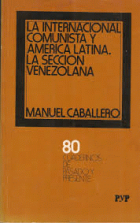
Part of Series
Author

Claude Lévi-Strauss was a French anthropologist, well-known for his development of structural anthropology. He was born in Belgium to French parents who were living in Brussels at the time, but he grew up in Paris. His father was an artist, and a member of an intellectual French Jewish family. Lévi-Strauss studied at the University of Paris. From 1935-9 he was Professor at the University of Sao Paulo making several expeditions to central Brazil. Between 1942-1945 he was Professor at the New School for Social Research. In 1950 he became Director of Studies at the Ecole Practique des Hautes Etudes. In 1959 Lévi-Strauss assumed the Chair of Social Anthroplogy at the College de France. His books include The Raw and the Cooked, The Savage Mind, Structural Anthropology and Totemism (Encyclopedia of World Biography). Some of the reasons for his popularity are in his rejection of history and humanism, in his refusal to see Western civilization as privileged and unique, in his emphasis on form over content and in his insistence that the savage mind is equal to the civilized mind. Lévi-Strauss did many things in his life including studying Law and Philosophy. He also did considerable reading among literary masterpieces, and was deeply immersed in classical and contemporary music. Lévi-Strauss was awarded the Wenner-Gren Foundation's Viking Fund Medal for 1966 and the Erasmus Prize in 1975. He was also awarded four honorary degrees from Oxford, Yale, Havard and Columbia. Strauss held several memberships in institutions including the National Academy of Sciences, the American Academy and Institute of Arts and Letters, the American Academy of Arts and Sciences, and the American Philosophical Society (Encyclopedia of World Biography).


